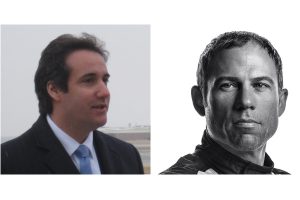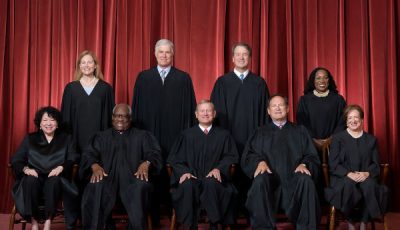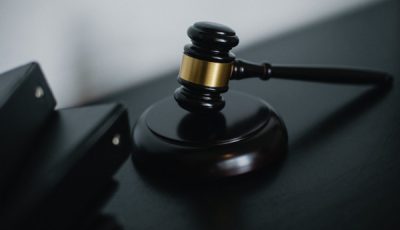Cohen: Avenatti Trying to “Litigate in the Court of Public Opinion”
 LOS ANGELES – In a strongly worded brief in support of a previously filed application for a restraining order to keep Stormy Daniels’ attorney Michael Avenatti from continuing to discuss the case publicly, attorneys for Michael Cohen argued their application is not premature and no less restrictive means to shut up Avenatti is available.
LOS ANGELES – In a strongly worded brief in support of a previously filed application for a restraining order to keep Stormy Daniels’ attorney Michael Avenatti from continuing to discuss the case publicly, attorneys for Michael Cohen argued their application is not premature and no less restrictive means to shut up Avenatti is available.
“Avenatti has and continues to engage in a willful, open, and consistent strategy to litigate in the court of public opinion, appearing on television over 170 times and issuing over 500 tweets, during which he routinely accuses Cohen of various criminal acts, being a moron, etc., and comments on anticipated evidence,” Cohen’s attorney Brent Blakely asserted in the brief. “Not only should Avenatti have reasonably known that his unprecedented level of self-promotion at the expense of Cohen would cause prejudice in this and other proceedings, it is reasonable to conclude that his comments were specifically calculated to accomplish this goal.”
Cohen’s attorneys also asserted Avenatti misstated the legal standard the court should apply in considering whether it should muzzle him, stating that a “fundamental flaw” in Avenatti’s opposition was the “misconception that attorneys engaged in a litigation have the same First Amendment Rights as everyone else.”
“Lawyers are ‘officers of the court,’” Blakely wrote. “As such they are critical to the proper functioning of our judicial system and must be held to exacting ethical standards. Because lawyers participating in a case have special access to information through discovery and client communications, their extrajudicial statements pose a grave risk because such statements are likely to be viewed as especially authoritative and thus highly influential.”
Blakely also took aim at Avenatti’s comparison of his own public statements to comments made by people associated with Cohen, like President Donald Trump and a recent addition to Trump’s legal team, Rudolph Giuliani.
“Avenatti attempts to deflect attention away from his own dubious conduct by pointing his finger at Cohen, President Trump, and Rudolph Giuliani,” Blakely argued in the brief. “At the outset, an important distinction is that unlike Avenatti, none of Plaintiff’s scapegoats is an attorney who has appeared in this case.”
Blakely observed a “massive difference in the matter of degree” between Avenatti’s public statements and those by Trump and Giuliani.
“Avenatti has made over 170 television interviews and issued 500 tweets in connection with this case. In stark contrast, Plaintiff cites to only one limited comment made by Cohen, three comments and tweets from President Trump, and two comments by Giuliani,” Blakely wrote, adding that by the time Trump gave “his first limited comment about this matter” Avenatti had “had already given 37 television interviews and issued 98 tweets regarding this case.”
“Significantly, Plaintiff fails to cite to a single interview given by either Cohen and/or President Trump’s respective counsel of record in this matter,” Blakely added.
In arguing no means less restrictive than the requested restraining order is available to counter the alleged harm being done by Avenatti’s public statements, Blakely cited Gentile v. State Bar of Nevada: “Few, if any, interests under the Constitution are more fundamental than the right to a fair trial by impartial’ jurors, and an outcome affected by extrajudicial statements would violate that fundamental right.”
“Avenatti has repeatedly crossed-the-line, routinely accusing Cohen of criminal acts, and has even taken it upon himself to obtain, apparently illegally, Cohen’s bank records and then disclosed them to the world to see,” Blakely wrote in the brief. “As this Court recently observed, the heightened scrutiny surrounding this case requires that the rules are scrupulously followed to ensure that justice is administered properly. Anything short of a restraining order would not only condone Avenatti’s conduct, it would encourage other lawyers to act likewise and attempt to influence potential jurors through the press.”
Judge S. James Otero, the judge hearing the matter, has set July 27 as the date for a hearing on Cohen’s application for a restraining order.













